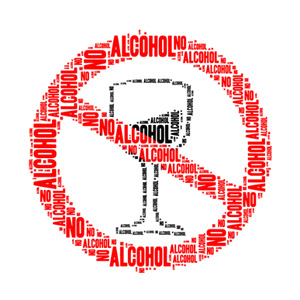- Home
- Medical news & Guidelines
- Anesthesiology
- Cardiology and CTVS
- Critical Care
- Dentistry
- Dermatology
- Diabetes and Endocrinology
- ENT
- Gastroenterology
- Medicine
- Nephrology
- Neurology
- Obstretics-Gynaecology
- Oncology
- Ophthalmology
- Orthopaedics
- Pediatrics-Neonatology
- Psychiatry
- Pulmonology
- Radiology
- Surgery
- Urology
- Laboratory Medicine
- Diet
- Nursing
- Paramedical
- Physiotherapy
- Health news
- Fact Check
- Bone Health Fact Check
- Brain Health Fact Check
- Cancer Related Fact Check
- Child Care Fact Check
- Dental and oral health fact check
- Diabetes and metabolic health fact check
- Diet and Nutrition Fact Check
- Eye and ENT Care Fact Check
- Fitness fact check
- Gut health fact check
- Heart health fact check
- Kidney health fact check
- Medical education fact check
- Men's health fact check
- Respiratory fact check
- Skin and hair care fact check
- Vaccine and Immunization fact check
- Women's health fact check
- AYUSH
- State News
- Andaman and Nicobar Islands
- Andhra Pradesh
- Arunachal Pradesh
- Assam
- Bihar
- Chandigarh
- Chattisgarh
- Dadra and Nagar Haveli
- Daman and Diu
- Delhi
- Goa
- Gujarat
- Haryana
- Himachal Pradesh
- Jammu & Kashmir
- Jharkhand
- Karnataka
- Kerala
- Ladakh
- Lakshadweep
- Madhya Pradesh
- Maharashtra
- Manipur
- Meghalaya
- Mizoram
- Nagaland
- Odisha
- Puducherry
- Punjab
- Rajasthan
- Sikkim
- Tamil Nadu
- Telangana
- Tripura
- Uttar Pradesh
- Uttrakhand
- West Bengal
- Medical Education
- Industry
Indian-origin American discovers drug to reduce alcoholism

V.V.N. Phani Babu Tiruveedhula, an Indian-American graduate student at the University of Wisconsin, Milwaukee has discovered a drug which will help reduce the rate of alcoholism, significantly. The drug can reduce the impulse to drink, which is the chief reason for alcohol abuse across the world. Babu has discovered promising new compounds, which will be used in the new drug ready to be launched in the market in five to six years.
Currently, the drug using its discovered compounds has been used on the rats bred to crave alcohol, and the scientists found that administering these compounds drastically diminished the rats' drinking, as reported by IANS.
The side effects common to alcoholism treatment drugs were also closely observed during the trail and no confirmed symptoms of commonly associated treatment factors such asa depression and losing the ability to experience pleasure were found in the rats.
The drugs also appeared to reduce anxiety in "alcoholic" rats but not in control rats.
Scientists have found that alcohol triggers the brain to release dopamine, a neurochemical whose levels increase in response to eating, sex or listening to music.
Some drugs currently available to treat alcoholism are aimed at dopamine.
"They dampen out the dopamine system a little bit, so you don't get so happy when you have an alcoholic beverage," added James Cook, chemist at the University of Wisconsin, Milwaukee.
But these medications, derived from a class of compounds called opioid antagonists, cause depression in some patients. These drugs are addictive themselves which can lead to drug abuse.
Tiruveedhula has made several new beta-carboline compounds that could represent the future of alcoholism treatment.
As such, the beta-carbolines may also be less addictive.
"What excites me is the compounds are orally active and they do not cause depression like some drugs do," Cook noted.
The team will present the results at the national meeting and exposition of the American Chemical Society (ACS) in Boston this week.
Currently, the drug using its discovered compounds has been used on the rats bred to crave alcohol, and the scientists found that administering these compounds drastically diminished the rats' drinking, as reported by IANS.
The side effects common to alcoholism treatment drugs were also closely observed during the trail and no confirmed symptoms of commonly associated treatment factors such asa depression and losing the ability to experience pleasure were found in the rats.
The drugs also appeared to reduce anxiety in "alcoholic" rats but not in control rats.
Scientists have found that alcohol triggers the brain to release dopamine, a neurochemical whose levels increase in response to eating, sex or listening to music.
Some drugs currently available to treat alcoholism are aimed at dopamine.
"They dampen out the dopamine system a little bit, so you don't get so happy when you have an alcoholic beverage," added James Cook, chemist at the University of Wisconsin, Milwaukee.
But these medications, derived from a class of compounds called opioid antagonists, cause depression in some patients. These drugs are addictive themselves which can lead to drug abuse.
Tiruveedhula has made several new beta-carboline compounds that could represent the future of alcoholism treatment.
As such, the beta-carbolines may also be less addictive.
"What excites me is the compounds are orally active and they do not cause depression like some drugs do," Cook noted.
The team will present the results at the national meeting and exposition of the American Chemical Society (ACS) in Boston this week.
addictionAlcohol AddictionalcoholismAmerican Chemical SocietydopamineUniversity of WisconsinV.V.N. Phani Babu Tiruveedhula
Meghna A Singhania is the founder and Editor-in-Chief at Medical Dialogues. An Economics graduate from Delhi University and a post graduate from London School of Economics and Political Science, her key research interest lies in health economics, and policy making in health and medical sector in the country. She is a member of the Association of Healthcare Journalists. She can be contacted at meghna@medicaldialogues.in. Contact no. 011-43720751
Next Story


